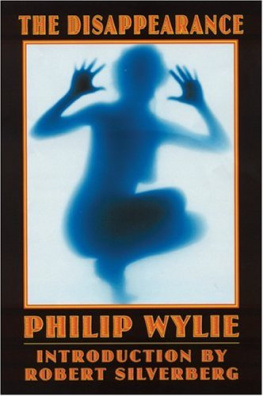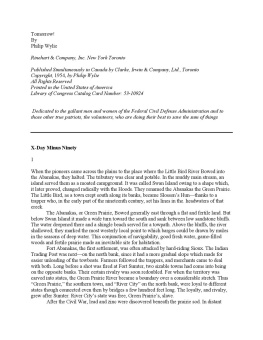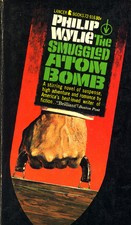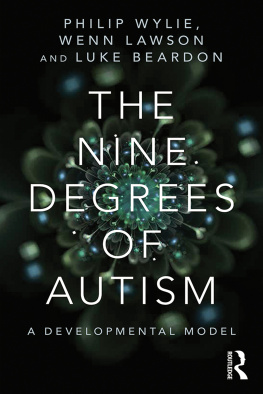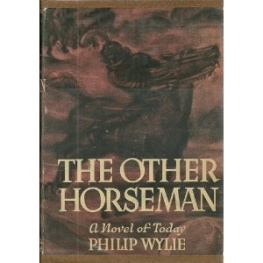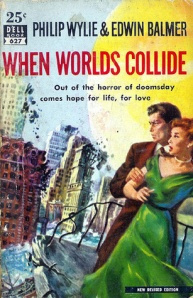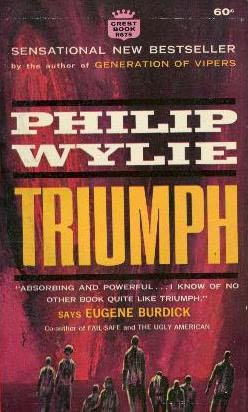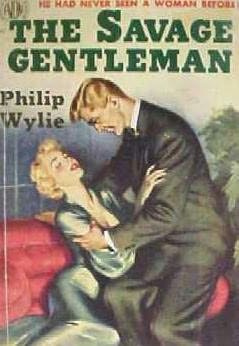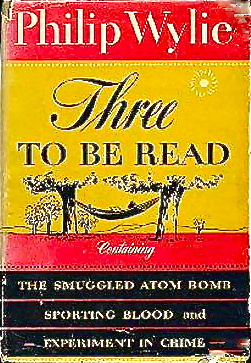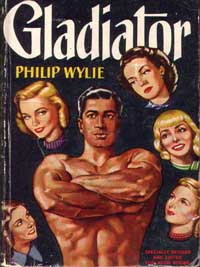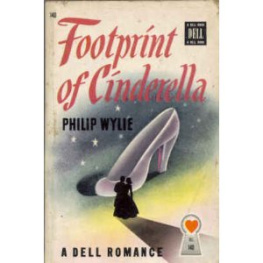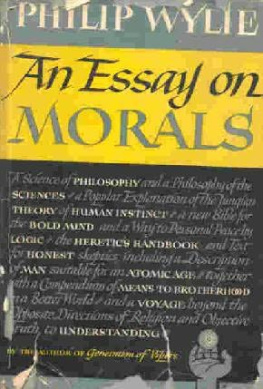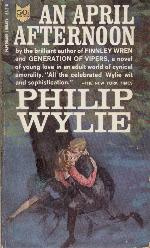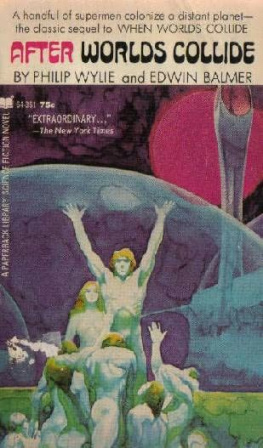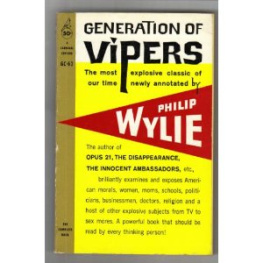Philip Wylie - The Disappearance
Here you can read online Philip Wylie - The Disappearance full text of the book (entire story) in english for free. Download pdf and epub, get meaning, cover and reviews about this ebook. year: 1951, genre: Detective and thriller. Description of the work, (preface) as well as reviews are available. Best literature library LitArk.com created for fans of good reading and offers a wide selection of genres:
Romance novel
Science fiction
Adventure
Detective
Science
History
Home and family
Prose
Art
Politics
Computer
Non-fiction
Religion
Business
Children
Humor
Choose a favorite category and find really read worthwhile books. Enjoy immersion in the world of imagination, feel the emotions of the characters or learn something new for yourself, make an fascinating discovery.
- Book:The Disappearance
- Author:
- Genre:
- Year:1951
- Rating:4 / 5
- Favourites:Add to favourites
- Your mark:
- 80
- 1
- 2
- 3
- 4
- 5
The Disappearance: summary, description and annotation
We offer to read an annotation, description, summary or preface (depends on what the author of the book "The Disappearance" wrote himself). If you haven't found the necessary information about the book — write in the comments, we will try to find it.
The Disappearance — read online for free the complete book (whole text) full work
Below is the text of the book, divided by pages. System saving the place of the last page read, allows you to conveniently read the book "The Disappearance" online for free, without having to search again every time where you left off. Put a bookmark, and you can go to the page where you finished reading at any time.
Font size:
Interval:
Bookmark:
The Disappearance
New York ~ RINEHART & CO. INC. ~ Toronto
Grateful acknowledgment is made to Shapiro, Bernstein & Co. Inc. for permission to reprint lyrics from Any Little Girl Thats a Nice Little Girl, copyright 1910, by Maurice Shapiro, copyright renewed; and from The Last Roundup, copyright, 1933, by Shapiro, Bernstein & Co. Inc.
COPYRIGHT, 1951, BY PHILIP WYLIE PRINTED IN THE UNITED STATES OF
AMERICA ALL RIGHTS RESERVED
The Disappearance
PHILIP WYLIE
A GENTLEMAN OF EMINENCE IS INTRODUCED AND A CURIOUS EVENT
TAKES PLACE BY WHICH HE, AND OTHERS, ARE BAFFLED.
The female of the species vanished on the afternoon of the second Tuesday of February at four minutes and fifty-two seconds past four oclock, Eastern Standard Time.
The event occurred universally at the same instant, without regard to time belts, and was followed by such phenomena as might be expected after happenings of that nature.
To Dr. William Percival Gaunt, as to a large portion (if not a majority) of males, the catastrophe was not immediately, or at least not clearly, manifest; by him, as by multitudes of others, the ensuing incidents were understood only gradually.
It is true that he was watching his wife, Paula, but he was doing so absent-mindedly. For more than two hours he had been at work in the study of his winter home in the suburban environs of Miami, Floridaat work only in the flimsiest sense of the phrase. Several large books, many with a secondhand look about them, lay open on his desk. Amongst and around the books were slips of paper which bore notations in his large, plain script. Before him was a typewriter. In its carriage stood the upper halves of three sheets of paper, one white, one yellow, and a carbon between. Upon these, at the top left-hand comer, was the numeral 7, and the ending of a sentence evidently begun on page 6:
... in consequence of which it may be said that the Hegelian position, the Taoistic opposites, Parallelism and the other dualistic theories, while rising from the same observed causes, do not reflect identical or even similar formulative attempts.
Beneath this was a space. After the space, Dr. Gaunt had typed:
Prolix.
There were several more spaces, then:
The dopes wont get to first base with it!
Beyond that, the paper was barren.
The [atrial sentence and the two deprecatory comments implied much about the man at the deska philosophical bent, for example. Dr. Gaunt was, indeed, a professional philosopher; in the past he had taught his subject at various universities. He was, moreover, what the American Magazine, in a long article, had termed a successful
philosopher. The word was employed in its commonest connotation: Gaunts books, when he wanted them to be, were very popular. In addition, a comedy concerning a philosopher, which he had written during the winter after his marriage to Paula, had run on Broadway for more than two years. It had also been purchased by a motion-picture company for a six-figure sum, toured lengthily on the road, and enjoyed a revival in 1946Gaunt was well-to-do.
His colleagues regarded the term successful, thus applied to a philosopher, with semipolite hilarity. They tagged him with it and referred to it whenever they could. Their mirth, however, was temperedsometimes by envy of Gaunts fiscal achievements, but more often by awareness that Gaunt towered in the realm of academic philosophy even higher than he loomed in the company of mortal men. Gaunt himself sometimes said his
headier hypotheses were so hard to understand that even he had to read them over and over to recapture their meaning.
His intellect was richly endowed and versatile; unlike many brilliant men, he had achieved not only fame and fortune but, besides that, owing to his gregariousness and his tact, he had been of considerable use to his country in the recent war, sharing the councils of the military, administrative and scientific elect. Toward it all he showed a casual and often slangy indifference. That attitude, of never quite taking either his thoughts or other mens responses to them with absolute seriousness, was also plainly implied by the comments that interrupted the composition before him:
Prolix, he had said of his writing, and:
The dopes wont get to first base with it.
The work was a lecture intended for a fusty, highbrow seminar to be held in St.
Petersburg in March. An abrupt realization that too much fustiness and too little brow height was going to limit the understanding of what he had already written had halted his endeavors shortly before three oclock. He had not actually labored since that moment.
Instead, he had worried, frittered and fumedalthough, for most of the interval, he had presented the very image of genius wrestling in difficult speculation. The truth was other.
Gaunt had noted with a frown that his elder daughter, Edwinna (temporarily
living at home after her second divorce), was persistently trying to sing the Italian Street Song from Naughty Marietta, a feat of which she was not quite capable.
He had observed that Edwinnas three-year-old, Alicia, was pattering unsupervised around the living roomand prepared his mind to hear something break.
Hester, the maid, was upstairs, running the electric waxera further frowned-at circumstance.
The philosopher had watched a mockingbird persecute two thirsty palm warblers when they had made pathetic forays on the birdbath.
He had lengthily examined a small scab on the tanned, roughened back of his left hand, wondering how he had come by the injury.
He had also entertained, one by one, a round dozen of the vague but nonetheless numbing worries that were the lot of intelligent persons in the periodworries that concerned the Russians, the diminution of American liberties, hydrogen bombs, the distressful effect of civilization upon the so-called resources of nature, the growing gap between what education was supposed to accomplish and what it consisted of, the national debt and its intimate aspect of high taxes, the problem of the excessive cost of medical care, and the like.
He had gone to the kitchen for a drink of ice water, patting his granddaughter on the head benignly as he passed both ways.
So an hour had been spent, in dawdling.
He was thinking of his lecture againof starting it over on, perhaps, a lighter topic-when Paula appeared.
She was freshly coiffured. Her figure, Gaunt observed pridefully, was as well proportioned as Edwinnas; Paula was, if anything, suppler and more graceful than her daughter. Her body knew more, knew it better, and showed both. His gaze went, as always, to his wifes hair; that too was youthfulradiantly soand as red as the day, twenty-seven years before, when he had ordered her to stay after class for a reprimand and wound up by burying his fingers and his lips in the spicy opulence.
Paula had not minded. On the contrary. Six weeks later, at a precocious nineteen, she had graduated; he and she had then signed the same marriage license.
Gaunt sighed and wondered why he sighed. Perhaps it was because he presumed it his business to analyze every scrap of thought or of emotion even though it gave rise to no more than the slightest exhalation. The notion vexed him.
Damn it, he thought, when a man is fifty-five and his wife is forty-six and when she looks like Paula and he feels as I do, a sigh is no more than minor prayer. It is a bead falling on a long rosary of passion and affection and good living. Let it go undefined! I loved the wench; the woman moves me still!
She moved him, then, differently.
She had been standing at the corner of the house gazing attentively at a gardenia that grew in a tub. It was a handsome bush with glittering leaves that here and there bore a blossom of incandescent white. A perfumed flowerand Gaunt had expected shed choose one and put it in her red curls which, for the moment, were mathematically arranged. Arranged, he reflected, by some chatty pansy who knew how to fix female hair but not what it meant. But she bent forward and thrust her fingers into the earth among the gardenias roots. Quickly she combed out several coral rocks and what appeared to be the casing of a very large insect. Next, she reached around a corner, picked up the end of a hose, bent again to turn the faucet and, digging with her fingers, watered the bush.
Next pageFont size:
Interval:
Bookmark:
Similar books «The Disappearance»
Look at similar books to The Disappearance. We have selected literature similar in name and meaning in the hope of providing readers with more options to find new, interesting, not yet read works.
Discussion, reviews of the book The Disappearance and just readers' own opinions. Leave your comments, write what you think about the work, its meaning or the main characters. Specify what exactly you liked and what you didn't like, and why you think so.

